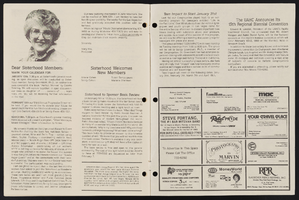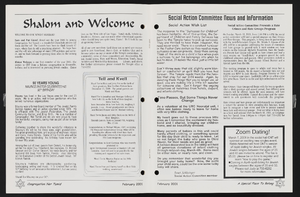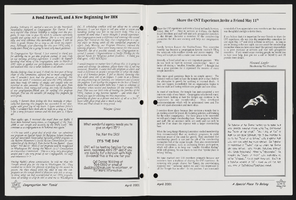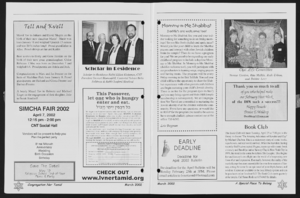Search the Special Collections and Archives Portal
Search Results
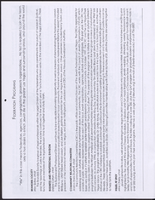
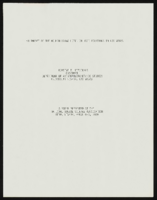
"An Impact of the Moulin Rouge Hotel on Race Relations in Las Vegas": paper by Roosevelt Fitzgerald
Date
Archival Collection
Description
From the Roosevelt Fitzgerald Professional Papers (MS-01082) -- Unpublished manuscripts file. Presented to the National Social Science Association, Reno, Nevada.
Text

Sara Kalaoram oral history interview: transcript
Date
Archival Collection
Description
Oral history interview with Sara Kalaoram conducted by Alexandra Arabshian on November 15, 2021 for Reflections: The Las Vegas Asian American and Pacific Islander Oral History Project. Sara Kalaoram shares her immigration story to the United States from Singapore in 2002 at the age of four. She talks about her upbringing in Las Vegas, Nevada, her education from Arizona State University, and her work with the Culinary Workers Union and with Assemblyman Steve Yeager as his campaign manager and executive assistant. Sara Kalaoram discusses cultural differences between Singapore and the United States, the immigration stories of her parents, and her experience as an Asian-American immigrant in the twenty-first century.
Text

Transcript of interview with Irene Fisher and Roberta Gang by Barbara Tabach, September 29, 2016
Date
Archival Collection
Description
Las Vegas has been home to Irene Fisher (1940 - ) since the early 1970s. It felt like home as she connected with the Jewish community, including a dear friendship with Roberta ‘Bobbie’ Gang, who sits with her during this interview. During their oral history conversation, the seemingly common concerns of any mother are touched upon. In their case they were young Jewish women looking out for the well-being of their children. They cover a range of topics, from b’nai mitzvahs to Hanukkah to shopping in those years of raising children, being active in the community, and maintaining career paths. Irene begins by describing her ancestral background that includes parents who emigrated from Poland to New York. In New York she met and married a young doctor who she followed to Nellis Air Force Base. Irene was a recent graduate of Brooklyn Law School. In Las Vegas, though Irene did not practice law here, she immersed herself into civic contributions. Chief among those was with the Clark County
Text

Transcript of interview with Ronald "Ron" Lurie by Stefani Evans and Claytee D. White, October 17, 2016 and November 10, 2016
Date
Archival Collection
Description
Ron Lurie is a product of Las Vegas. Ron Lurie knows Las Vegas. The Los Angeles native arrived in Las Vegas with his parents when he was twelve years old; his father opened Market Town next to White Cross Drug Store. Lurie graduated from Las Vegas High School in 1958 and attended Nevada Southern, where he played baseball and basketball before joining the United States Army Reserves. Returning from training, he began working at a new store, Fantastic Fair. Soon the owner, builder Lloyd Whaley, asked him to manage a new Fantastic Fair. At 24 years of age, he managed the entire Fantastic Fair store, which later became Wonder World. Over time, Lurie would manage three of the four Wonder World stores. In this interview, the former mayor of the City of Las Vegas and former Las Vegas City Council member talks about running for City council because he wanted more parks and ball fields downtown and about his political career, which coincided with the years of explosive growth in the 1970s and 1980s. The current vice president and general manager of Arizona Charlie's also v discusses his careers in the grocery business and in gaming; he speaks to giving back to the community and the changing demography of the area surrounding Arizona Charlie's; he talks of the ways Steve Wynn pioneered an aura of glamour that helped to upgrade Downtown Las Vegas; he recalls the challenges of public safety, regional transportation, flood control, and the Monorail and of civic dreams of a magnetic levitation train that would connect Downtown Las Vegas to Cashman Field. He remembers his parents and his wife; he talks about his children, and he shares vignettes of, among many others, Ernie Becker IV, Bill Briare, Al Levy, Steve Miller, and Bob Stupak. Throughout, Mayor Lurie especially beams when he talks about his family, his friends, his work, Las Vegas, the Boys and Girls Clubs, and baseball. This man loves baseball.
Text

